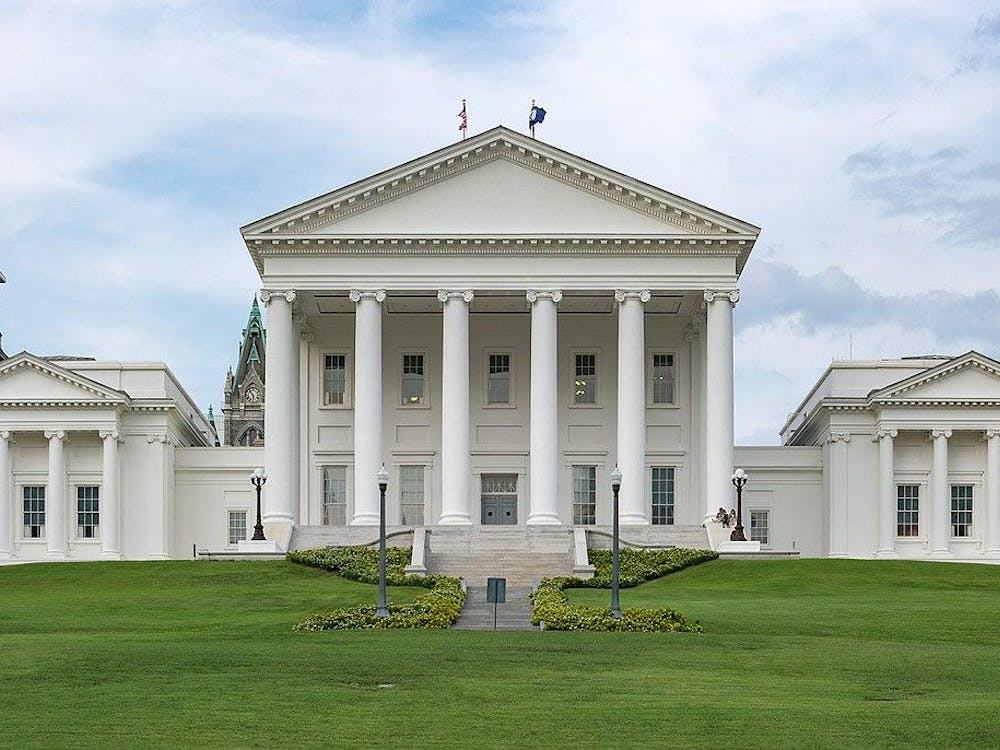ALMOST all of us Democrats watched faithfully on that fateful Tueday night, and as the hours passed, a noticeable strain developed in our eyes and, more importantly, in our hearts. Some of us campaigned night and day for Kerry, while others supported him with what counts the most, a vote. But at some point Wednesday morning, all of us sighed a similar sigh, thought similar thoughts and asked the same question: What am I supposed to do now? In an argument appealing only to the source of our past successes, I will attempt to answer that question.
Bob Woodward, during his visit to the University, reminded us of the remarkably wise words of former President Nixon, who said upon his resignation, "Always remember, others may hate you -- but those who hate you don't win unless you hate them, and then you destroy yourself." How ironic, yet appropriate, that the words of a scandalous Republican were those needed most desperately by Democrats across the nation. It's hard to deny that Democratic motivation was based on hatred and contempt for the president; evidence in favor of such a position was everywhere from AIM profiles to high-profilespeeches. Lost in our ocean of hate, our ship was slow to take direction, and instead spent most of her time fighting off superficially founded claims against our candidates. The result? Not only did we fail to convey a coherent message to America, but we failed to convert our strong opposition to Bush into an effective campaign. The "anyone but Bush" mentality was simply insufficient to persuade a nation that a change in war-time leadership was prudent.
But there is another h-word that has historically defined liberals, an h-word that is the solution to our grief and disappointment: hope. While conservatives are by definition satisfied with the status quo, or earlier versions of it, liberals are constantly seeking to change society for the better, never being satisfied with the status quo. This dedication to progress requires a level of hope that is inspiring in and of itself.
While securing labor laws such as child labor prohibitions, minimum wages and maximum hours was at one point impossible (as demonstrated in the 1905 Supreme Court decision Lochner v. New York), our hope, acting as the proverbial light at the end of the tunnel, led the nation out of that very tunnel and toward the procurement of basic rights. When social rights were the dreams of a hopeless romantic in the age of Dred Scott v. Sandford, it was again the unremitting hope of liberals that led to a widespread, successful effort for equal rights. When the Supreme Court decision Bradwell v. Illinois demonstrated the complete implausibility of a woman escaping the shackles of housework, it was yet again the undying hope of liberals that has brought us to an age where the Democratic forerunner in the 2008 elections is none other than Hillary Clinton, a woman.
While to some people, hope may be simply a word -- to liberals, hope is not only how we win, but how we live.
So what now? While we faced a surprise defeat in 2000, this election was significantly different. Because we lost even after coming prepared, our loss highlighted many elements of the Democratic Party that the Republicans have rightfully shaken: our leadership, our structure and our approach. But I write not to speak of them, for my conviction is that these elements will naturally and inevitably be dealt with. Instead I write with the desire to reinvigorate the Democratic Party with the words of Emily Dickinson: "Hope is the thing with feathers, that perches in the soul, and sings the tune without words, and never stops at all... I've heard it in the chillest land, and on the strangest sea."
As we now collectively walk across the tundra of electoral defeat and swim across the sea of disappointment, let us allow hope to be our guide. While the Republican forest protection initiatives may have temporarily cut down America's forests, their axe will never reach the tree that our hope perches on. Our knowledge of this allows us to answer the question, what now?
After completing our natural period of grief, we can and will remobilize and multiply our efforts to bring about the future we've dreamt of: the existence of one America -- safe, secure, free and fair within, while respected and admired abroad.
Sina Kian's column appears Thursdays in The Cavalier Daily. He can be reached at skian@cavalierdaily.com.





